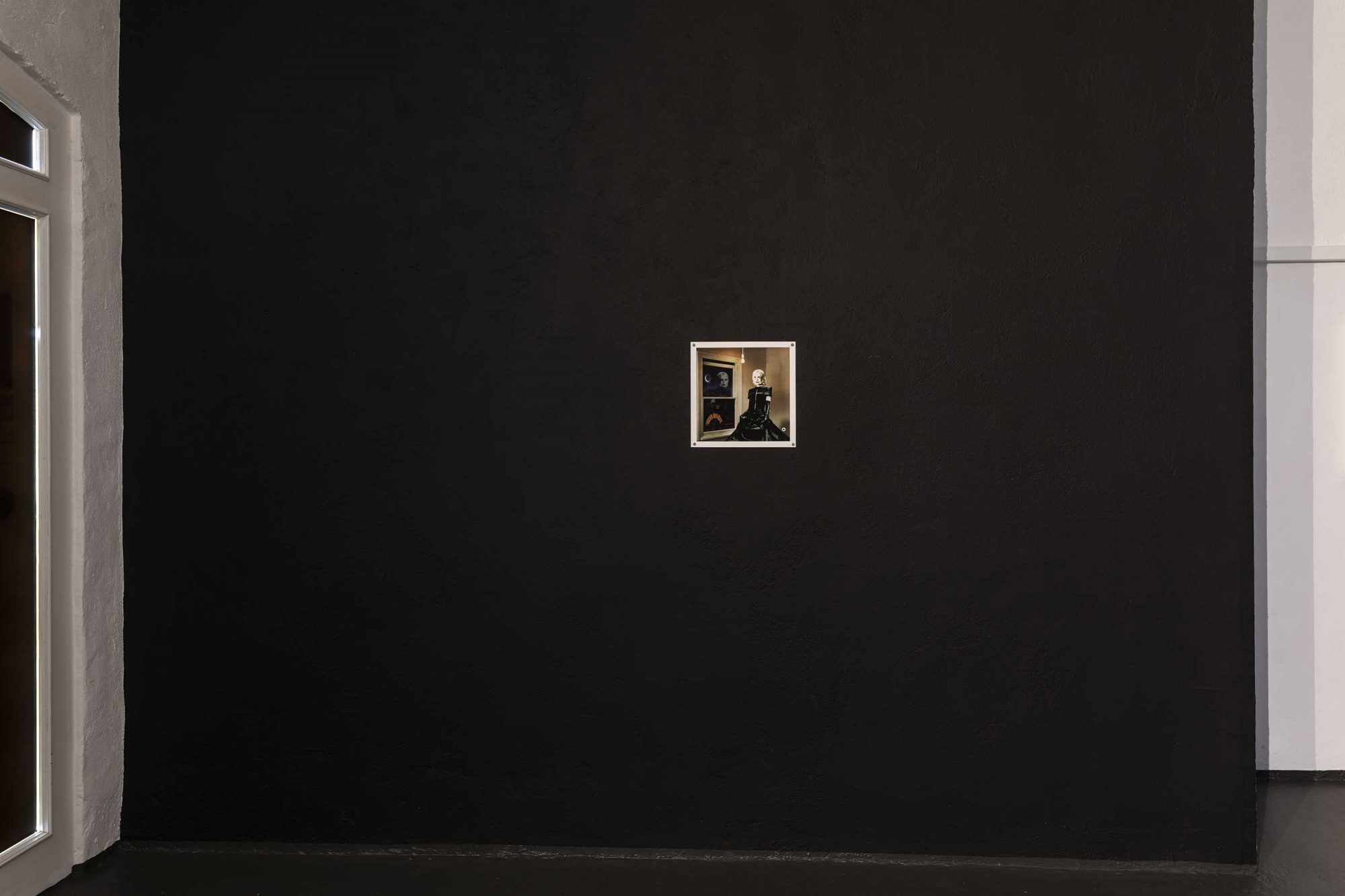|
press プレス |
|
Confrontational Ambient Terre Thaemlitz, "Reframed Positions" at Halle für Kunst Lüneburg - Kerstin Stakemeier |
In Mousse (IT), September 1 2023.

Terre Thaemlitz, Replicas Rubato, 1999, Terre Thaemlitz "Reframed Positions" at Halle für Kunst Lüneburg, 2023. Album cover for Replicas Rubato: Piano Interpretations of Gary Numan Titles. Courtesy: the artist and Halle für Kunst Lüneburg. Photo: Fred Dott.
|
* Georges Bataille in conversation with Marguerite Duras in Georges Bataille, Die Aufgaben des Geistes: Gespräche und Interviews 1948-1961 (Berlin: Bearbeitung, Übersetzung von Rita Bischof, 2012), 75, my translation. ** https://www.comatonse.com/writings/2017_deproduction.html. |
Never speaking truth to power is a rare conviction. It disfigures the basis of what is called being political by understanding the space of politics as framed by violence and confronting it with a fundamental attitude of noncompliance. A commitment akin maybe to George Bataille's characterization of his anti-fascist praxis as actively "not taking responsibility for the world in any sense whatsoever."* Taking responsibility against the world, however, disqualifies you from any kind of popularity contest. Not just metaphorically speaking, but also literally: you will not be popular. But what you might choose to be instead-and what both Bataille was in his clandestine anti-fascism of the 1930s, and what Terre Thaemlitz, who in her work Deproduction (2017) proposes to never speak truth to power, chooses to be-is communal: dedicated to delivering oneself to those communities and communions for whom the experience of the violence of the political is a daily and nightly given. Not perceived as framing reality, but constituting it. If we, with Thaemlitz, account for the fact that "transsexual access to medical care has historically gone hand in hand with a formal diagnosis of gender identity disorder (GID)," then what is diagnosed as dysphoria gives a name to its systemic violence, an "absence of non-binary gender options."** Thaemlitz registers that the sexes we inhabit as she and he-altering her gender leanings in yearly and in contextual patterns-and the sounds and music we wish to lose ourselves in, the narratives we tell of ourselves, the theories we frame to make sense, and even the communions we inhabit, are mastered in their material lives by the presence of such constitutive violences. Since the late 1980s, Terre Thaemlitz has dedicated her work to un-mastering them.
| 1 https://www.comatonse.com/releases/c022.html. |
|
2 https://www.comatonse.com/releases/c022.html. 3 The video ends on this text, appearing in written form on the screen. 4 This is part of the text appearing in written form-always in both English and Japanese in the video. |
And so Thaemlitz is never really isolating her individual works but keeps perpetuating them into complete surroundings of media, videos, writing, performances, posters she designed as part of educational outreach, such as her manual HIV/AIDS 101 (1993), and her work as a producer and DJ. Between them, there is love, pleasure, beauty, and communion. They just never come to us released from their ambience.
In the retrospective in Lüneburg, all of these works were present, as was Soulnessless, the video accompanying the thirty-two-hour MP3 album of the same title, giving space to Thaemlitz's decidedly low-fi substitution of aesthetic immersion with confrontational ambience. The exhibition, curated by Elisa R. Linn and Ann-Kathrin Eickhoff together with Thaemlitz's long-term collaborator Lawrence English, thus was a case of neither fan fiction nor critical evaluation. It approximated Thaemlitz's own proceedings, and offered a rare understanding of her relationship to the arts she employs as much as one of her work. Reframed Positions was dedicated not to tracing back Thaemlitz's development, but rather, or so it seemed, to positing that there is no development in her work. Simply because there cannot be. As long as what Thaemlitz faces head-on-the heterosexist brutalization of sex under the stately auspices of the Christian family model and its white supremacist globalization-thrives, she will un-master its ambience. Confrontational ambient.
|
5 http://non.com.co/info. 6 http://non.com.co/trilogy/. 7 See Terre Thaemlitz: Give Up on Hopes and Dreams, produced by Patrick Nation for Resident Advisor 2021. Participants were 辻愛子 / Tsuji Aiko, Dont Rhine, 吉田泉 / Izumi Yoshida, Laurence Rassel, Mark Fell, and Terre Thaemlitz. Available at https://ra.co/films/3876. |
at Halle für Kunst Lüneburg from May 11 to July 16, 2023
Terre Thaemlitz (b. 1968, St. Paul, Minnesota) is an awarded multimedia producer, writer, public speaker, educator, audio remixer, DJ, and owner of Comatonse Recordings. Her work undertakes a critical examination of themes including identity politics, gender, sexuality, class, linguistics, and race, within the context of the socio-economics of commercial media production. Her insights on music and culture have been internationally published in books, academic journals and magazines. She has released over fifteen solo albums, as well as numerous 12-inch singles and video works. Her writings on music and culture have been published internationally in a number of books, academic journals and magazines. As a speaker and educator on issues of non-essentialist Transgenderism and Queerness, Thaemlitz has lectured and participated in panel discussions throughout Europe and Japan, and her work has been exhibited in major artistic events and institutions, such as documenta 14 (2017) and Halle für Kunst Lüneburg (2023).
Kerstin Stakemeier is an educator at the Academy of Fine Arts Nuremberg and a writer who mostly works in collaboration. In 2021, the exhibition Illiberal Arts, conceived with Anselm Franke, opened at Haus der Kulturen der Welt Berlin; in spring 2023 its second iteration opened under the title Illiberal Lives at Stiftung Moderne Kunst Ludwig Forum, Aachen, Germany. With Bill Dietz, Stakemeier realized Universal Receptivity (2021); with M. Ammer, E. Birkenstock, J. Nachtigall, and S. Weber she organized and edited the exhibition series and journal Class Languages (2017-18); and with Marina Vishmidt she wrote Reproducing Autonomy (2016). Stakemeier is currently working on a second book.